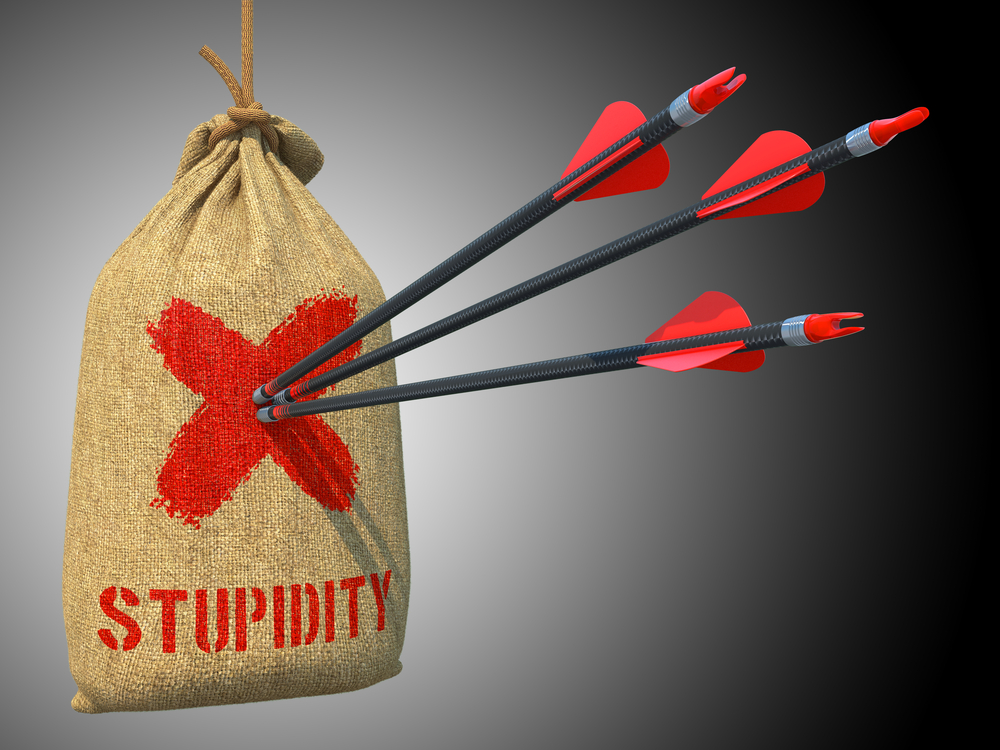
To paraphrase the incipit of the Manifesto of the Communist Party (my apologies to Karl Marx), a specter is haunting America—the specter of wokeness. But wokeness has intellectual feet of clay. By the time you read this post, the news of the fake article published by Wiley’s academic journal Higher Education Quarterly will probably start hitting mainstream media and we should know more.
I heard about this story on Tuesday night through a post by Dan Klein on Yahoo’s BastiatList, a private group. The suspected hoax seems to have been first revealed the day before by the website Powerline. Yesterday, Wednesday, the National Review reported that the article appears to be a fake.
To understand the interest of this story, recall that, in 1996, Alan Sokal, a physicist at the University of New York, had an article published in the postmodern journal Social Text. (As I understand it, wokism is a mix of postmodernism, gender fixation, and racial obsession.) As Sokal later said about his hoax,
nowhere in [his article] is there anything resembling a logical sequence of thought; one finds only citations of authority, plays on words, strained analogies, and bald assertions… I go on to suggest (once again without argument) that science … in order to be ‘liberatory,’ must be subordinated to political strategies.
Two decades later, Peter Boghossian, a philosophy professor at Portland State University, and co-authors James Lindsay and Helen Pluckrose, pulled a series of similar hoaxes (Sokal II, as it were) by publishing postmodern and woke nonsense in small academic journals. Again, only the correct words, the emotional orthodoxy, and the right conclusions seemed to matter.
Now, this past October, an article bearing the names of Sage Owens and Kal Avers-Lynde III, “Donor Money and the Academy: Perceptions of Undue Donor Pressure in Political Science, Economics, and Philosophy,” appeared on the website of the Higher Education Quarterly, a journal in the portfolio of well-known publisher Wiley, as an online pre-publication, that is, before appearing in a forthcoming printed issue of the journal. (The link above is still live as I write this post on Wednesday night.) The authors argue, in an academic tone slightly colored by an anti-classical-liberal bias, that their survey provides strong statistical evidence that faculty and administrations of American colleges and universities feel constrained by their “right-wing” donors:
Right-wing money has a strong overall effect on perceptions. Faculty and staff generally feel pressure to hire and promote white candidates, to avoiding hiring and promoting non-white candidates, to hire and promote right-wing and moderate candidates, and to teach and promote right-wing ideas. …
Our study demonstrates that right-wing donations are strongly associated with feelings of undue influence and a lack of safety, even among right-wing respondents.
The abstract includes:
Right-wing money strongly appears to induce faculty and administrators—including those who self-identify as members of the right—to believe that they are pressured to hire and promote people they regard as inferior candidates, to promote ideas they regard as poor, and to suppress people and ideas they regard as superior.
The specter of Koch money appears often in the article along with code words such as “neoliberalization of higher education” or “market fundamentalism.” That might have been sufficient to have the article accepted, despite fabricated data and obvious errors.
The identity of the two listed authors is still a mystery. Somebody clever noted that the initials of their names, Sage Owens and Kal Avers-Lynde III read “SOKAL III”!
Yesterday afternoon, I emailed the Wiley Newsroom about this article. An anonymous person responded that the journal has issued the following statement—which, strangely, at the time of writing, I am unable to find online:
Higher Education Quarterly takes research integrity incredibly seriously and is moving swiftly to retract the article given that the data has been identified as fabricated and the authors have not disclosed their true identities.

READER COMMENTS
Capt. J Parker
Dec 2 2021 at 11:42am
Writing nothing more than fasionable nonsense and getting it published is a damming critique of postmodern acaddemic journals. Fabricating data that logically supports a conclusion, even if that conclusion has a high degree of social desirability among readers of the target publication, doesn’t approach the “emperor has no clothes” effect of the Sokal affair. Yes, Higher Education Quarterly did a rotten job of reviewing the bogus statistical analysis. That is neither the first or last time bad statistical analysis gets published. If Higher Education Quarterly had rejected the paper and told the authors the reason for the rejection was because data collection and statistical analysis is a tool with which systemic racism opresses others, than that would be more newsworthy.
Pierre Lemieux
Dec 2 2021 at 11:54am
Capt. J. Parker: You have a point. But rigor in engineering is clearly a means of oppression: see my previous Econlog post, ““Ice is not Ice” and the Limits of Conversation.”
Sage Owens
Dec 2 2021 at 12:42pm
It’s not merely incorrect statistical analysis. It is blatantly, over-the-top nonsense that any competent social scientist should have seen through at a glance. Every page contains blatant errors.
Pierre Lemieux
Dec 3 2021 at 2:12pm
Sage Owens: Thanks for the addendum.
Mark Brady
Dec 2 2021 at 1:41pm
Abstract
Retraction: Sage Owens, Kal Avers-Lynde, III, “Donor money and the academy: Perceptions of undue donor pressure in political science, economics, and philosophy (https://doi.org/10.1111/hequ.12360).” The above article, published online on 25 October 2021 in Wiley Online Library (wileyonlinelibrary.com) has been retracted by agreement between the journal’s Editors-in-Chief, Tatiana Fumasoli and Christine Teelken, and John Wiley and Sons, Ltd. The retraction is agreed because data in the article has been identified as fabricated and the authors have not disclosed their true identities.
Pierre Lemieux
Dec 2 2021 at 2:57pm
Thanks, Mark.
James Strickland
Dec 2 2021 at 7:31pm
You got the journal name wrong in the first few sentences. It’s Higher Education Quarterly.
Pierre Lemieux
Dec 3 2021 at 2:11pm
Thanks, James! Corrected.
Comments are closed.